How AI Is Changing Software Development
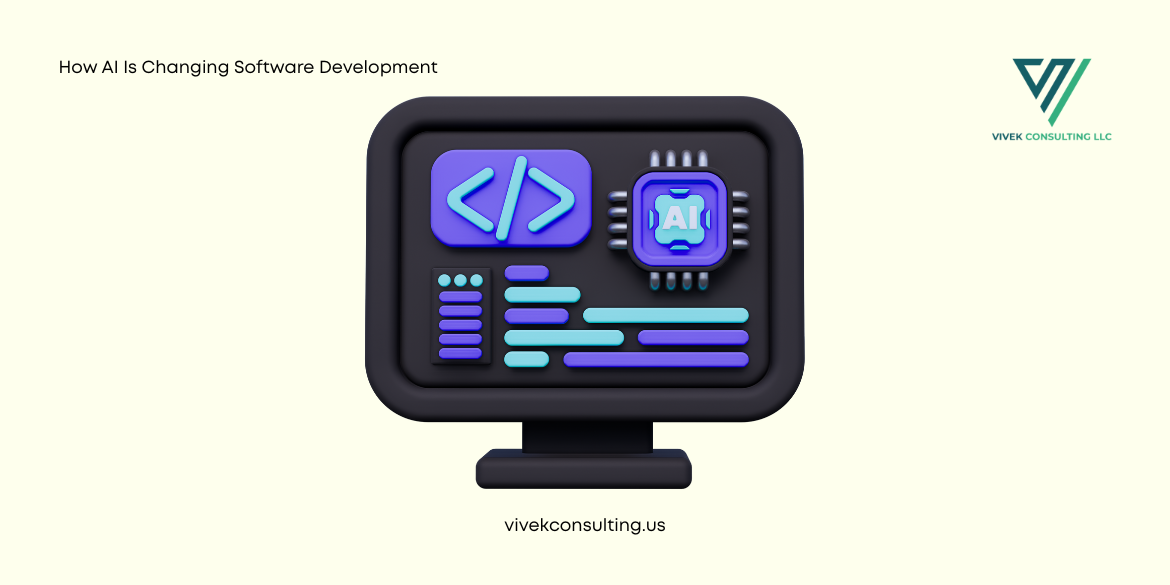
18 Apr 2025
See how AI is changing
software development with real-time code suggestions, bug detection and
intelligent automation.
Introduction
The intersection of artificial
intelligence and Software
Development is rapidly reshaping the landscape of how code is written,
tested, and deployed. What was once the domain of manual keystrokes and linear
workflows is now a fluid ecosystem augmented by machine intelligence. AI’s
integration is not just a trend—it’s a tectonic shift in the evolution of how
digital infrastructure is created and maintained.
The Rise of AI in Software
Development
AI is no longer a sci-fi idea
reserved for research facilities. It's embedded in everyday Development environments, subtly
transforming the craft from the ground up. This shift is less about replacement
and more about amplification—developers are not being displaced, but empowered.
How AI Is Becoming an Integral
Part of the Developer’s Toolkit
From code autocompletion to
predictive debugging, AI tools have become indispensable assets in a
developer's arsenal. They're seamlessly integrated into IDEs, CI/CD pipelines,
and version control systems, acting as silent collaborators who anticipate, analyze,
and advise in real time.
The Evolution of Code Writing
From Manual Coding to
AI-Assisted Programming
Handwriting each line of code is
becoming less common. AI-assisted programming tools now scaffold projects,
suggest frameworks, and even auto-generate boilerplate code. These systems
learn from vast repositories of open-source and proprietary codebases, enabling
faster development cycles.
The Role of AI in Reducing
Developer Workload
AI is used to handle tedious and
repetitive activities including formatting, grammar corrections, and standard
logic implementations. This delegation allows human developers to focus on
creative problem-solving and architectural decisions, drastically reducing
cognitive load and burnout.
Real-Time Code Suggestions: A
Game Changer
What Are Real-Time Code
Suggestions?
Real-time code suggestions are
dynamic, context-aware prompts generated by AI as developers write code. Unlike
traditional autocomplete, these systems understand variable scopes, function
calls, and even intent based on prior code.
How AI Understands Context to
Suggest Code
AI models like Codex or Code Whisperer
ingest the entire development context—file structure, imports, language
syntax—and use advanced pattern recognition to provide highly relevant
suggestions that go beyond syntax into semantics.
Popular Tools Offering
Real-Time Code Recommendations
Leading platforms include GitHub
Copilot, Amazon CodeWhisperer, Tabnine, and Replit Ghostwriter. Each leverages
large language models trained on diverse programming languages and
repositories, providing multilingual code intelligence.
Benefits of Using AI-Powered
Code Autocomplete
These tools accelerate
development speed, reduce the likelihood of syntactic errors, and enhance code
quality. They also serve as learning aids, suggesting optimal ways to use
unfamiliar APIs or libraries, making junior developers more effective.
AI and Bug Detection: Catching
Errors Before They Happen
The Traditional Way of
Debugging vs AI-Driven Debugging
Conventional debugging involves
manual tracing, logging, and trial-and-error. AI changes this by automatically
flagging anomalies, detecting antipatterns, and suggesting corrections before
the code even runs.
How AI Identifies Patterns to
Detect Bugs
AI leverages historical bug data,
static analysis, and execution patterns to preemptively identify sections of
code likely to fail. These models evolve with usage, becoming more attuned to
the nuances of a specific codebase.
Reducing Downtime and
Increasing Efficiency with AI Bug Detection
By shifting error detection
leftward in the pipeline, AI minimizes time spent troubleshooting
post-deployment issues, thereby accelerating release cycles and ensuring
greater software reliability.
AI in Automated Testing
Speeding Up the Testing
Lifecycle
AI accelerates test creation,
execution, and maintenance by auto-generating test cases, identifying redundant
scripts, and optimizing test coverage without human intervention.
Creating Smarter Test Cases
with Machine Learning
ML models analyze past bugs and
user behavior to build test cases that mimic real-world usage scenarios,
catching edge cases that human testers may overlook.
Real-Time Feedback and
Continuous Integration Improvements
AI integrates with CI/CD
platforms to offer instant feedback on code quality, performance regressions,
and potential vulnerabilities, facilitating smoother merges and releases.
Intelligent Automation in
DevOps
How AI Streamlines Deployment
Pipelines
AI-driven tools monitor builds,
trigger deployments, and roll back failed releases autonomously. They learn
from deployment histories to anticipate issues and optimize deployment
sequences.
Automating Routine Tasks to
Free Up Developer Time
Routine DevOps tasks—log
monitoring, server provisioning, load balancing—are increasingly handled by AI
agents, allowing DevOps teams to focus on strategic initiatives.
Adaptive Algorithms for
Resource Optimization
AI allocates server resources
dynamically based on real-time traffic and performance metrics, reducing cloud
costs and maximizing uptime.
Enhancing Code Quality with AI
How AI Reviews and Refactors
Code
AI-powered linters and static
analysis tools go beyond formatting checks to assess code structure, suggest
modularization, and recommend performance optimizations.
Ensuring Consistency and
Readability Across Projects
By enforcing style guides and
flagging inconsistent patterns, AI ensures uniformity across large codebases,
making collaboration smoother and maintenance easier.
AI and Natural Language
Processing in Development
Using NLP to Convert Plain
English to Code
Developers can now describe
desired functionality in plain English, and NLP models convert that into
executable code snippets—a massive leap in accessibility and speed.
Chatbots and Virtual
Assistants for Developer Support
Integrated assistants powered by
NLP answer coding queries, document APIs, and even walk through debugging
steps, acting as 24/7 development mentors.
Security Enhancements Through
AI
Real-Time Threat Detection in
Code
AI scans code for security
vulnerabilities like SQL injection or XSS attacks as they’re written, alerting
developers before flaws become exploits.
Predictive Security Measures
Using AI Models
Machine learning anticipates
potential attack vectors by simulating threat patterns and proposing proactive
defense strategies.
Collaboration and
Communication in AI-Powered Teams
How AI Bridges the Gap Between
Developers and Stakeholders
AI-driven documentation tools
translate technical workflows into digestible insights for non-technical
stakeholders, fostering transparency and alignment.
Using AI to Translate
Technical Jargon for Non-Tech Teams
Advanced NLP simplifies code
logic and comments, generating summaries that product managers and business
analysts can easily interpret.
Personalized Learning for
Developers
AI-Based Learning Platforms
for Skill Development
Platforms like CodeSignal and
Educative use AI to create tailored lessons, quizzes, and challenges that adapt
to a developer's current knowledge and goals.
Creating Adaptive Learning
Paths Based on Developer Performance
AI monitors progress and
dynamically adjusts content difficulty, ensuring continuous growth and
minimizing frustration through personalized pacing.
Challenges of Integrating AI
into Development Workflows
Common Roadblocks to Adoption
Resistance often stems from
unfamiliarity, legacy system incompatibility, and fear of losing control.
Integration requires cultural and technical recalibration.
Balancing Human Creativity
with AI Efficiency
While AI excels at repetition and
prediction, the abstract thinking and intuition that fuel innovation remain
human strengths. Harmonizing both is the ultimate goal.
Ethical Considerations and
Bias in AI Development Tools
Understanding the Risks of
AI-Generated Code
AI can perpetuate biases present
in training data, generate insecure code, or produce incorrect logic if not
carefully guided and reviewed.
Ensuring Transparency and
Accountability in AI Tools
Open-source models, explainable
AI practices, and rigorous auditing help maintain trust and responsibility in
the AI development lifecycle.
Future of Software Development
with AI
Predicting the Next Wave of AI
Innovations in Dev
Expect breakthroughs in
autonomous project scaffolding, intelligent codebase summarization, and
multi-modal interfaces combining voice, code, and visuals.
Preparing for a World Where AI
Co-Creates Software
Organizations must cultivate AI
literacy, invest in upskilling, and adapt workflows to harness the full
potential of collaborative intelligence.
Conclusion
Key Takeaways on AI in
Software Development
AI is not just transforming how
developers work—it’s redefining what’s possible. From real-time suggestions to
autonomous testing, the entire lifecycle is being optimized.
Why Embracing AI Is Essential
for Modern Development Teams
To remain competitive,
development teams must adopt AI not as a crutch, but as a catalyst—accelerating
innovation, elevating quality, and unlocking new dimensions of productivity.
Recent Articles
-
 Want more local traffic? These Local SEO Tips to Rank Higher on Google will get you noticed
Want more local traffic? These Local SEO Tips to Rank Higher on Google will get you noticed
-
 What's the Difference Between on-page and off-page SEO?
What's the Difference Between on-page and off-page SEO?
-
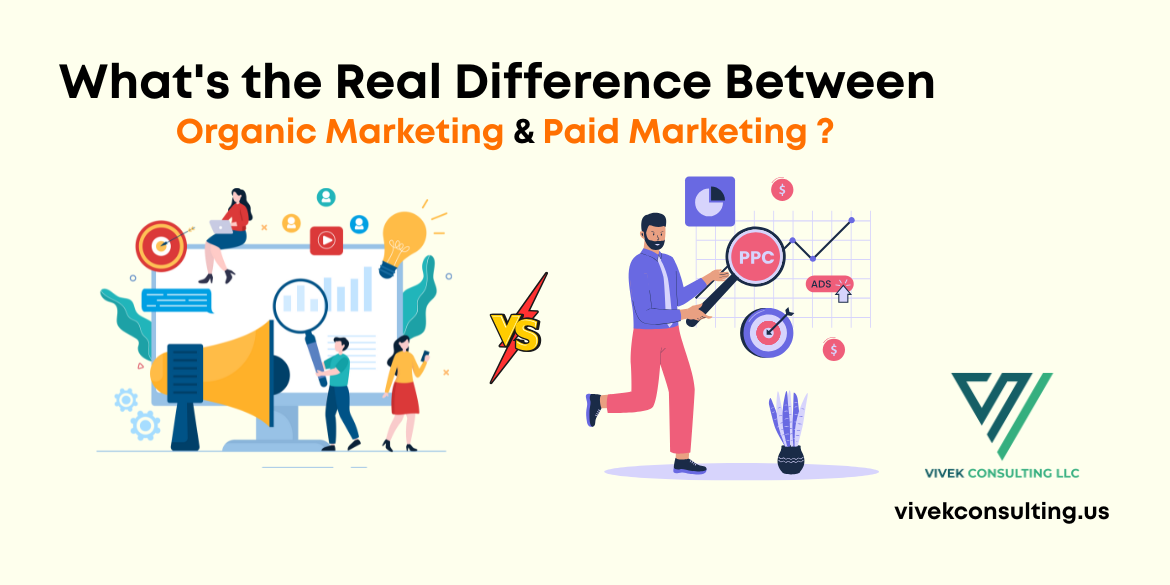 What's the Real Difference Between Organic and Paid Digital Marketing?
What's the Real Difference Between Organic and Paid Digital Marketing?
-
 Boost SEO with a Mobile Friendly Website Today
Boost SEO with a Mobile Friendly Website Today
-
 How to Change the Theme on Shopify Without Using Any Code
How to Change the Theme on Shopify Without Using Any Code
-
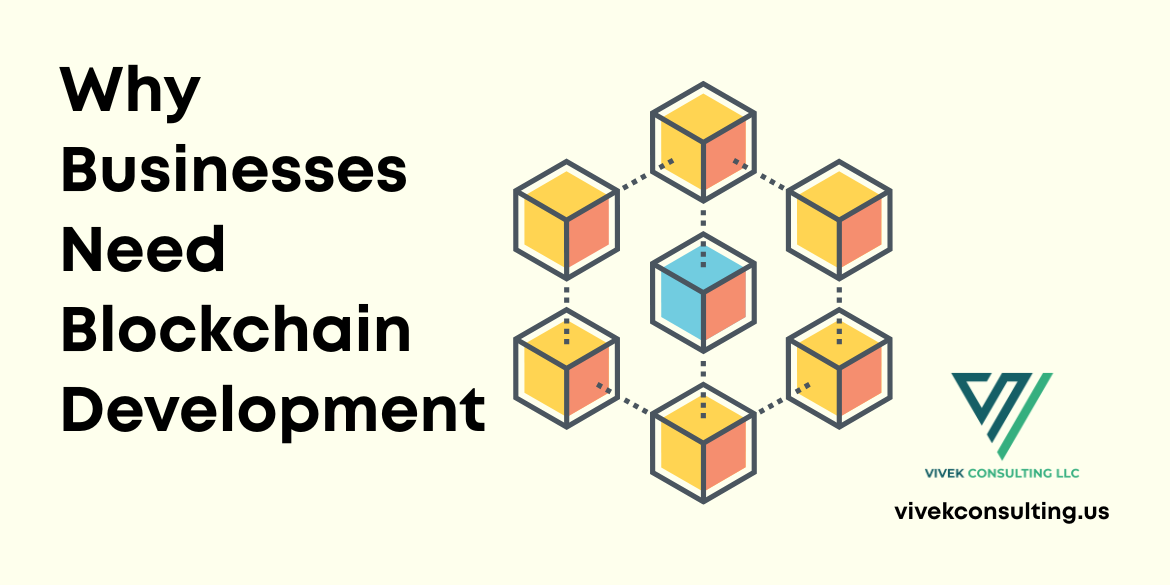 Why Businesses Need Blockchain Development
Why Businesses Need Blockchain Development
-
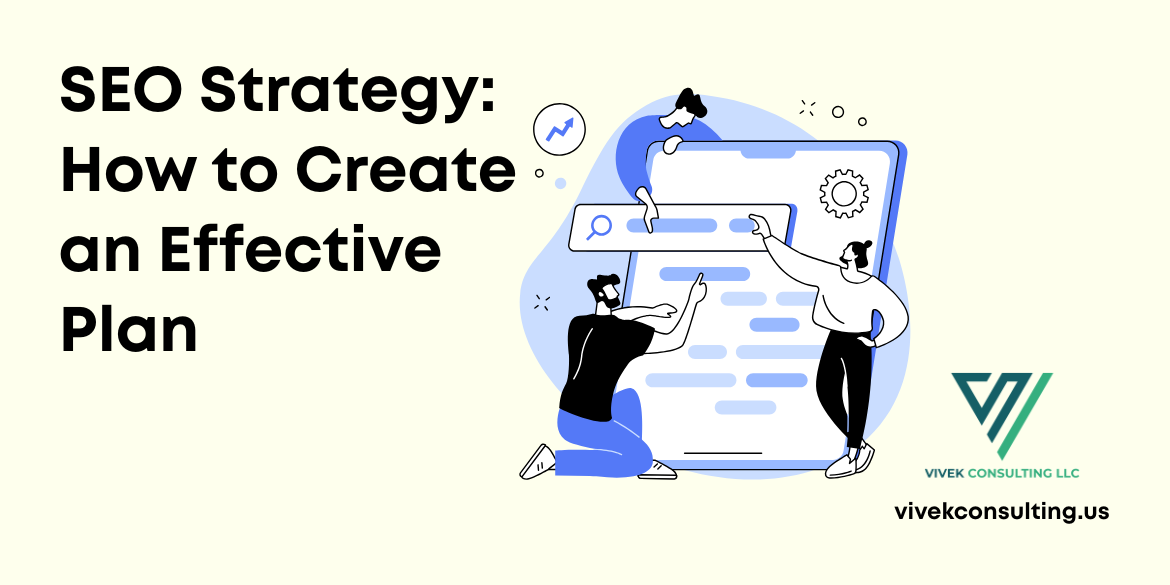 SEO Strategy: How to Create an Effective Plan
SEO Strategy: How to Create an Effective Plan
-
 2025 Digital Marketing Trends and Predictions
2025 Digital Marketing Trends and Predictions
-
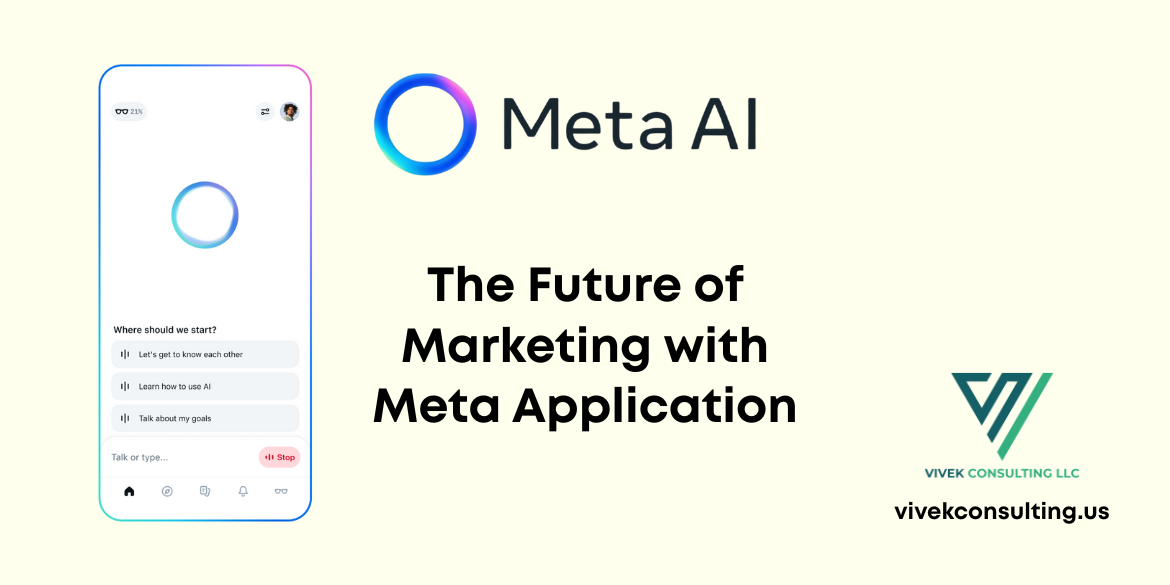 The Future of Marketing with Meta Application
The Future of Marketing with Meta Application
-
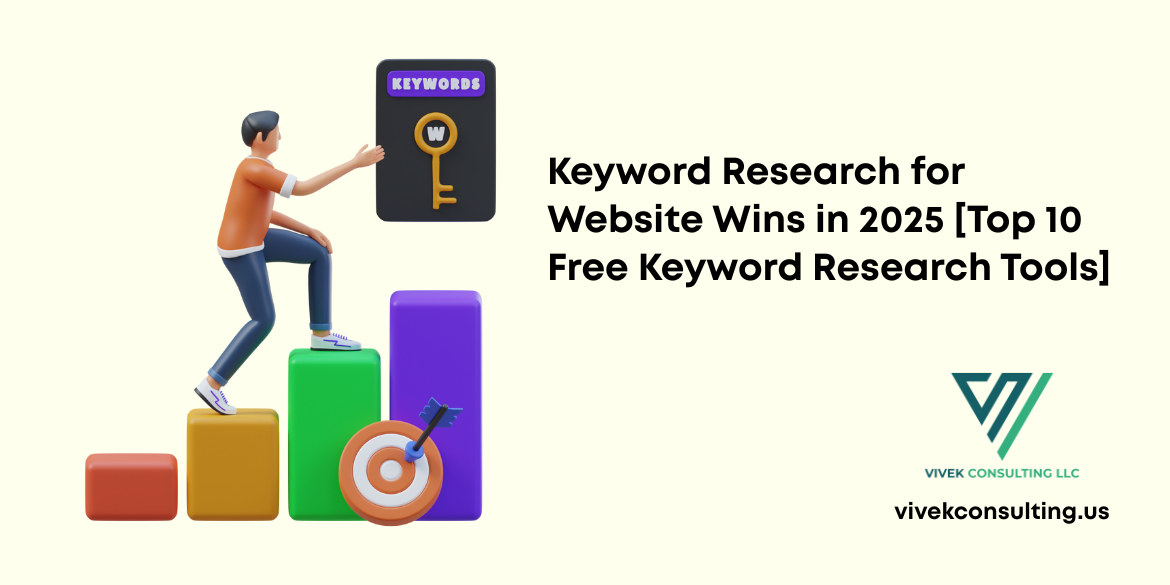 Keyword Research for Website Wins in 2025 [Top 10 Free Keyword Research Tools]
Keyword Research for Website Wins in 2025 [Top 10 Free Keyword Research Tools]
-
.png) Learning the SEO Audit Checklist. Every website should rank higher, load faster, and convert better without wasting time.
Learning the SEO Audit Checklist. Every website should rank higher, load faster, and convert better without wasting time.
-
 Ready for serious growth? Outsource services to scale your business fast and save time and money.
Ready for serious growth? Outsource services to scale your business fast and save time and money.
-
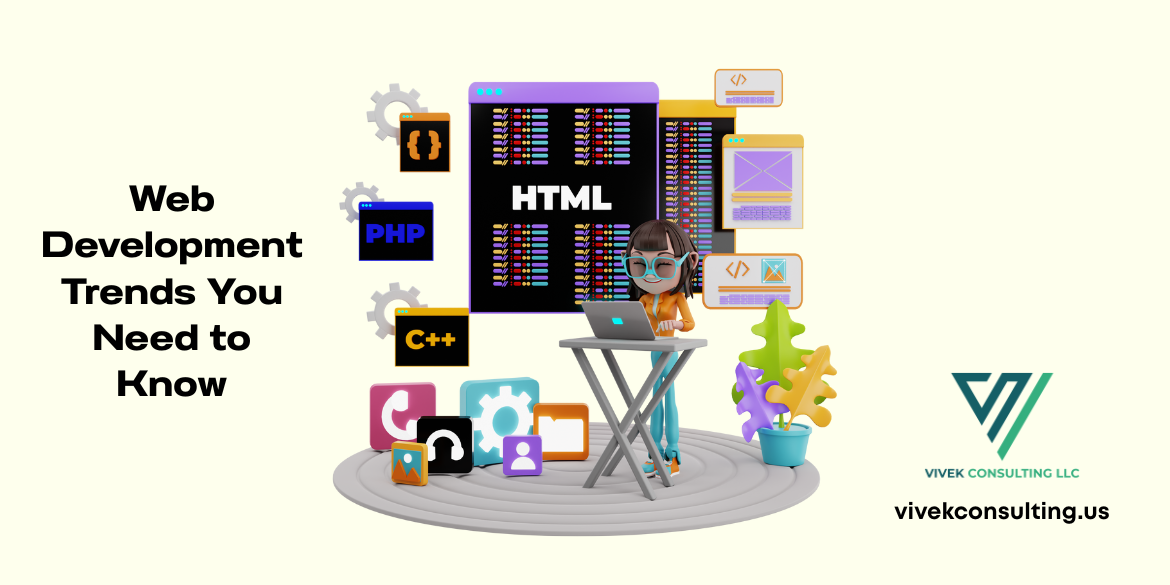 From AI to no-code, explore the Web Development Trends You Need to Know right now.
From AI to no-code, explore the Web Development Trends You Need to Know right now.
-
 Supercharge Business Growth with SEO
Supercharge Business Growth with SEO
-
 Digital Marketing Trends You Cannot Ignore in 2025
Digital Marketing Trends You Cannot Ignore in 2025
-
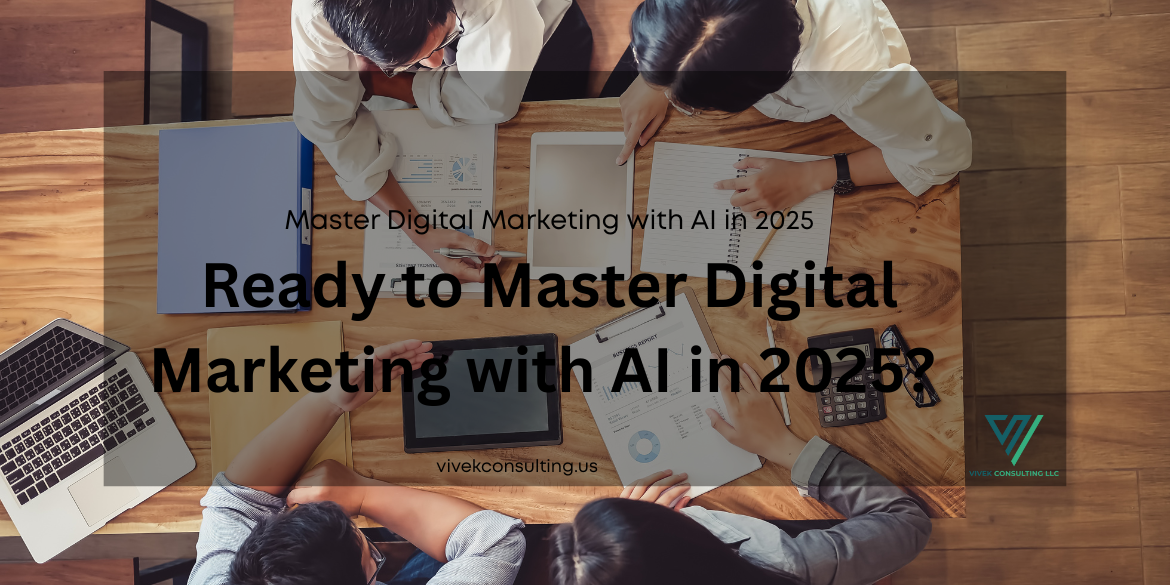 Master Digital Marketing with AI in 2025
Master Digital Marketing with AI in 2025
-
 How AI Is Changing Software Development
How AI Is Changing Software Development
-
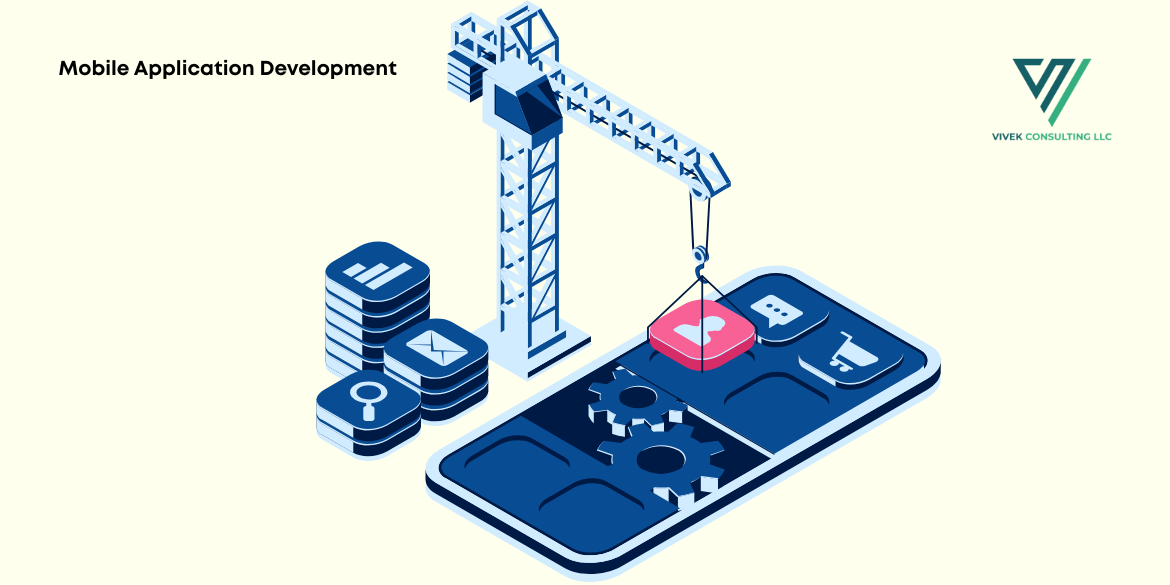 Mobile Application Development in 10 Easy Steps
Mobile Application Development in 10 Easy Steps
-
 Outsource Services to Boost Efficiency
Outsource Services to Boost Efficiency
-
 Ready to scale smart? Boost efficiency fast with managed services that work.
Ready to scale smart? Boost efficiency fast with managed services that work.
-
 Outsource Services: The Smart Move for Your Business
Outsource Services: The Smart Move for Your Business
-
 Technical SEO Tactics to Skyrocket Your Rankings
Technical SEO Tactics to Skyrocket Your Rankings
-
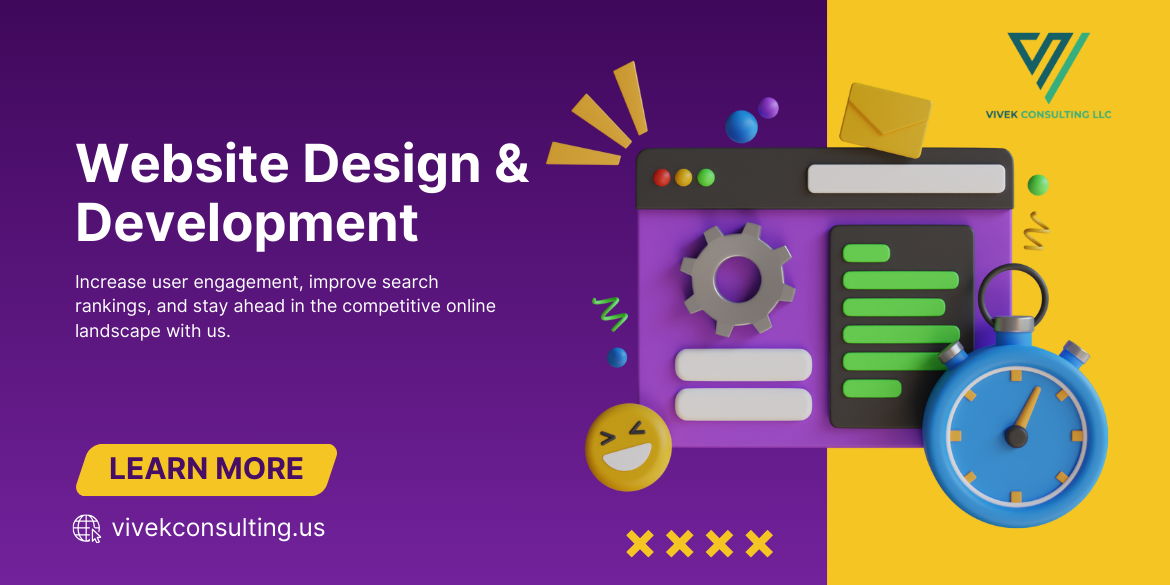 The digital world is evolving fast. Here is the web development trends you can’t ignore if you want to stay competitive.
The digital world is evolving fast. Here is the web development trends you can’t ignore if you want to stay competitive.
-
 Want more traffic? These off-page SEO tips will help you rank higher and grow like a pro! ????
Want more traffic? These off-page SEO tips will help you rank higher and grow like a pro! ????
-
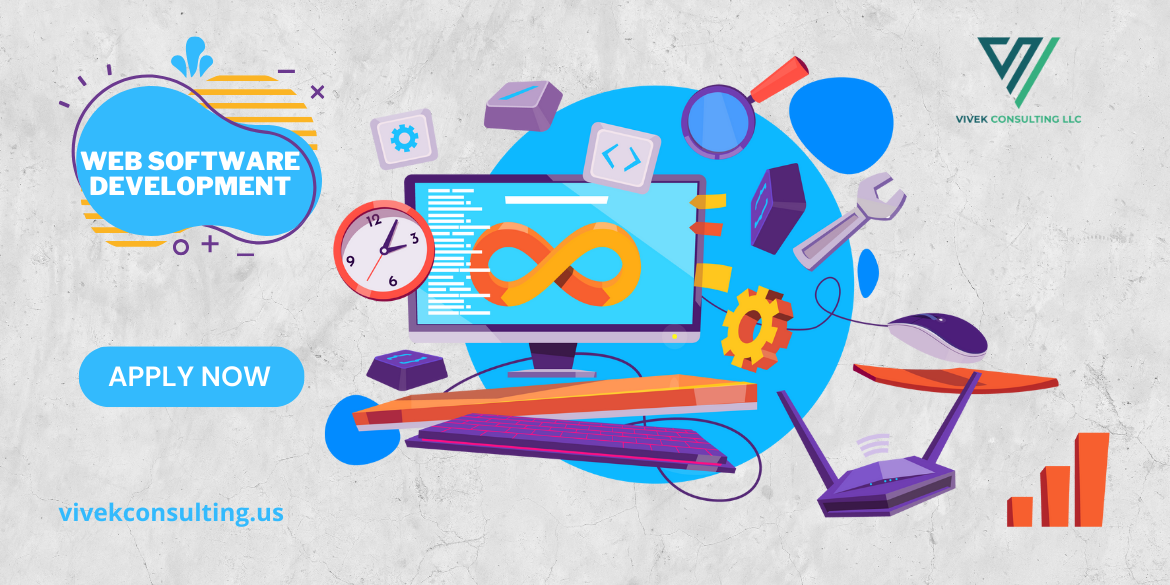 The Role of AI in Modern Software Development
The Role of AI in Modern Software Development
-
 Boost Organic Traffic Through On-Page SEO Strategies
Boost Organic Traffic Through On-Page SEO Strategies
-
 How SEO Can Skyrocket Your Business Growth
How SEO Can Skyrocket Your Business Growth
-
.png) Why Digital Marketing Benefits Business Success in Charlotte NC
Why Digital Marketing Benefits Business Success in Charlotte NC
-
 Explore the future of smartphone application development with Vivek Consulting and stay ahead of the game.
Explore the future of smartphone application development with Vivek Consulting and stay ahead of the game.
-
 Crush Your Competition with Digital Marketing Charlotte NC - Vivek consulting
Crush Your Competition with Digital Marketing Charlotte NC - Vivek consulting
-
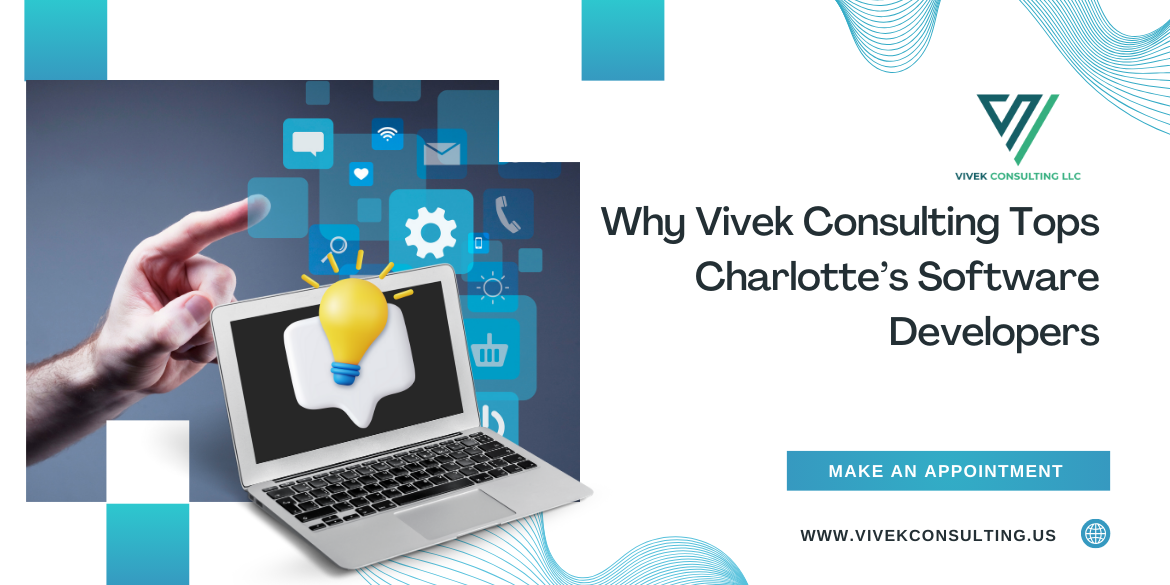 Why Vivek Consulting Tops Charlotte’s Software Developers
Why Vivek Consulting Tops Charlotte’s Software Developers
-
 The Innovation of Smart and Inclusive UX: How AI and 5G Are Transforming Mobile Application Development
The Innovation of Smart and Inclusive UX: How AI and 5G Are Transforming Mobile Application Development
-
 Website Development: The Value of Web Design in Establishing a Powerful Online Presence
Website Development: The Value of Web Design in Establishing a Powerful Online Presence
-
 Elevate Your Brand: Discover the Top Marketing Agency in Charlotte for 2025 - Vivek consulting
Elevate Your Brand: Discover the Top Marketing Agency in Charlotte for 2025 - Vivek consulting
